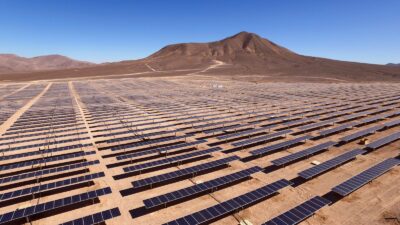The Evolution of Solar Water Heating
Harnessing Solar Energy for Water Heating
Solar water heating systems have undergone significant advancements, leveraging technological innovations to enhance efficiency and reliability. Traditionally, solar water heaters consisted of rooftop collectors that absorbed sunlight to heat water for domestic or industrial use. However, continuous improvements in collector design, insulation, and circulation systems have optimized performance and durability.
Countries like Saudi Arabia and the UAE, with abundant sunlight and a growing demand for water heating, are ideal candidates for widespread adoption of solar water heating systems. By investing in solar thermal technology, these nations can reduce reliance on fossil fuels for water heating, mitigating greenhouse gas emissions and promoting sustainable development. The integration of solar water heaters into residential, commercial, and industrial buildings demonstrates a commitment to renewable energy and environmental stewardship.
Moreover, technological advancements, such as evacuated tube collectors and heat exchangers, have increased the efficiency and versatility of solar water heating systems. Evacuated tube collectors, for example, minimize heat loss and perform well in low-light conditions, making them suitable for diverse climates. Heat exchangers facilitate the transfer of heat from solar collectors to water storage tanks, ensuring optimal energy capture and utilization.
Technological Innovations Driving Solar Water Heating
Technological innovations are driving the evolution of solar water heating systems, making them more accessible and cost-effective for consumers. Advances in materials science, such as the development of high-efficiency absorber coatings and durable insulation materials, enhance the performance and longevity of solar collectors. These innovations reduce maintenance requirements and improve system reliability, making solar water heating a viable long-term investment.
Furthermore, digital technologies, such as smart controllers and remote monitoring systems, optimize system operation and energy management. Smart controllers adjust pump speed and flow rates based on real-time weather conditions and demand, maximizing energy savings and comfort. Remote monitoring systems allow users to track system performance and troubleshoot issues remotely, ensuring reliable operation and peace of mind.
Additionally, integration with other renewable energy technologies, such as photovoltaic (PV) panels and heat pumps, enhances the overall efficiency and resilience of solar water heating systems. Hybrid systems that combine solar thermal collectors with PV panels or heat pumps can provide year-round hot water production, even in cloudy or cold weather. This hybrid approach maximizes energy utilization and minimizes reliance on grid electricity or backup heating sources.
Leadership and Collaboration in Solar Water Heating
Leadership and collaboration are essential for accelerating the deployment of solar water heating systems and maximizing their impact. Governments, utilities, and industry stakeholders must collaborate to develop supportive policies, incentives, and regulations that encourage the adoption of solar thermal technology. Leadership from Saudi Arabia and the UAE in promoting solar water heating initiatives sets an example for other nations, demonstrating a commitment to renewable energy and climate action.
Effective communication and public awareness campaigns are crucial for educating consumers and building confidence in solar water heating technology. By highlighting the benefits of solar thermal systems, such as energy savings, environmental benefits, and long-term cost-effectiveness, leaders can inspire widespread adoption and investment. Executive coaching services can help equip leaders with the skills needed to communicate effectively and mobilize support for solar water heating projects.
Furthermore, international collaboration and knowledge sharing are essential for scaling up solar water heating deployment and addressing common challenges. By sharing best practices, lessons learned, and technological innovations, countries can accelerate progress towards a sustainable energy future. Leadership in solar water heating development not only benefits individual nations but also contributes to global efforts to combat climate change and achieve sustainable development goals.
Embracing Solar Water Heating for Sustainable Development
Solar Water Heating as a Key Solution
Solar water heating represents a key solution for addressing energy challenges and advancing sustainable development goals. By harnessing abundant solar energy to heat water, countries can reduce energy consumption, lower carbon emissions, and enhance energy security. In regions like Saudi Arabia and the UAE, where water heating demand is high and solar resources are plentiful, solar water heating offers a reliable and cost-effective alternative to conventional heating methods.
Moreover, solar water heating systems provide social and economic benefits, such as job creation, local manufacturing, and energy independence. The installation and maintenance of solar thermal systems create opportunities for skilled labor and small businesses, stimulating economic growth and entrepreneurship. Additionally, by reducing reliance on imported fossil fuels for water heating, countries can enhance energy resilience and reduce vulnerability to external shocks.
Furthermore, solar water heating contributes to climate mitigation efforts by displacing fossil fuel use and reducing greenhouse gas emissions. By transitioning to renewable energy sources for water heating, countries can make significant progress towards their climate targets and commitments. The integration of solar water heating into building codes and energy efficiency standards further accelerates adoption and ensures that new construction projects prioritize sustainability and resilience.
Conclusion: Advancing Solar Water Heating for a Sustainable Future
In conclusion, the continuous technological advancements in solar water heating systems offer a pathway to a more sustainable and resilient future. By harnessing the power of the sun to heat water, countries can reduce their carbon footprint, enhance energy security, and promote economic development. The leadership and collaboration demonstrated in solar water heating deployment set a positive example for global efforts to transition to clean and renewable energy sources.
As the world seeks to address the challenges of climate change and energy transition, solar water heating emerges as a practical and scalable solution with significant potential. By embracing solar thermal technology and investing in its deployment, nations can reap the benefits of clean, reliable, and locally available energy, driving progress towards a more sustainable and prosperous future for all.
—
#solarwaterheatingsystems #renewableenergy #sustainability #SaudiArabia #UAE #cleanenergy #solartechnology #sustainabledevelopment























